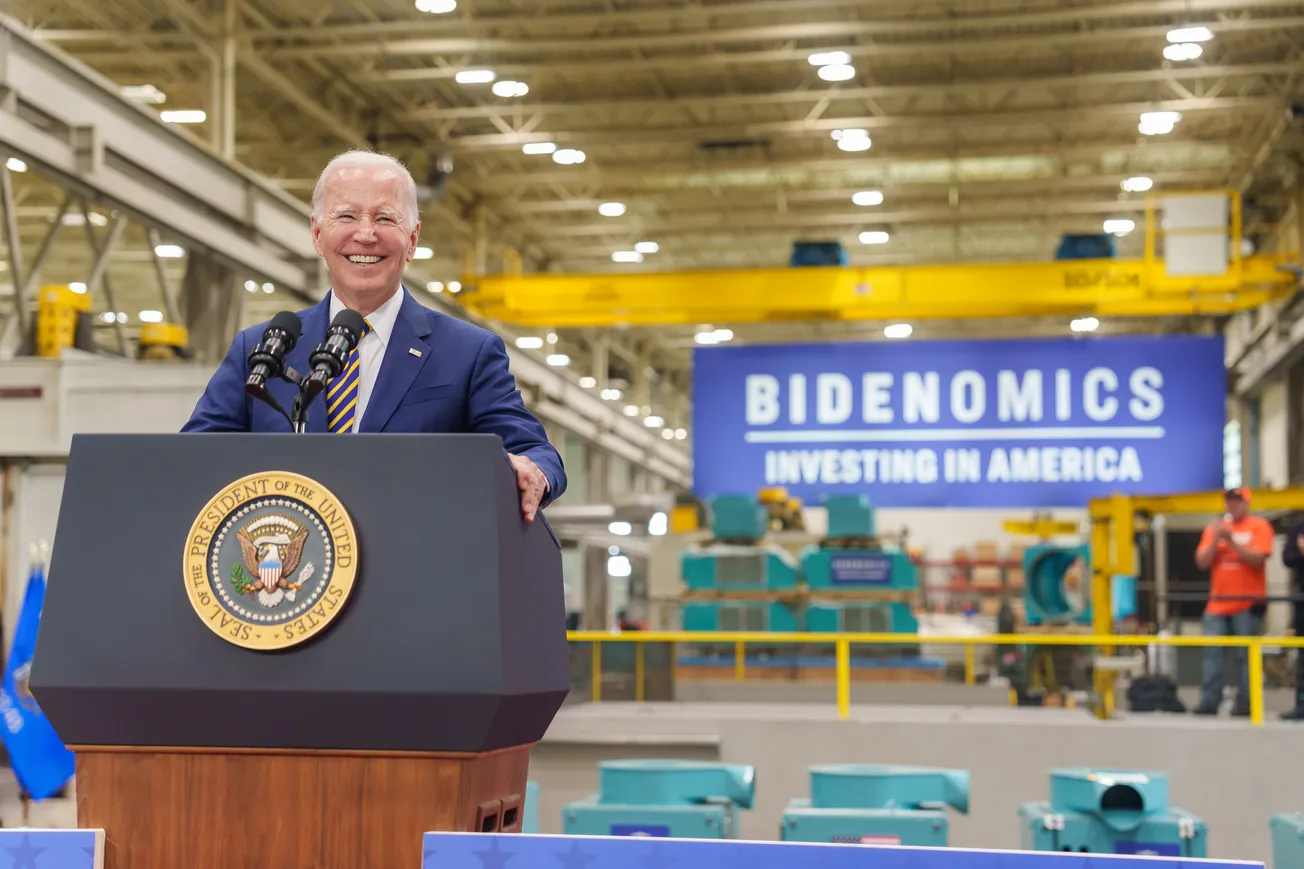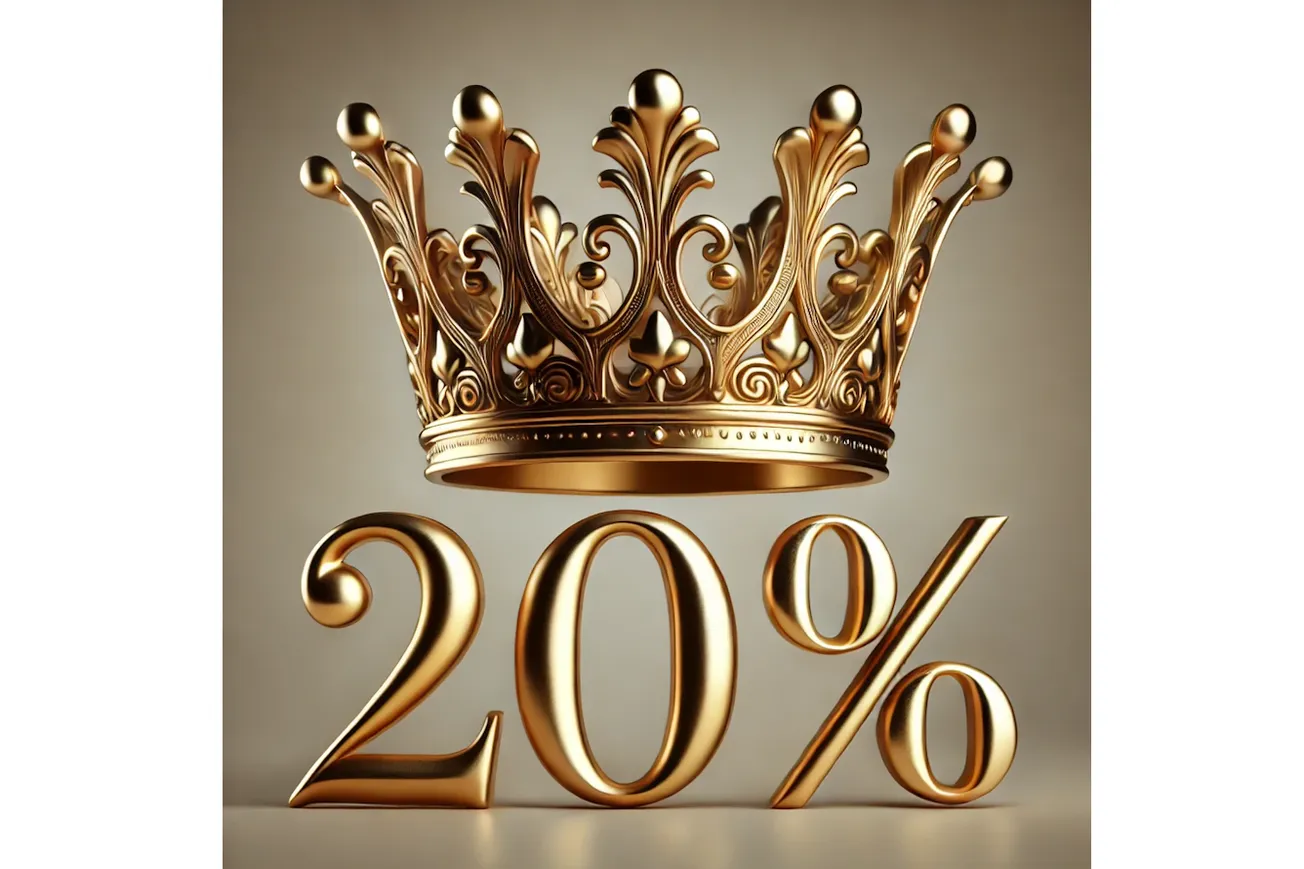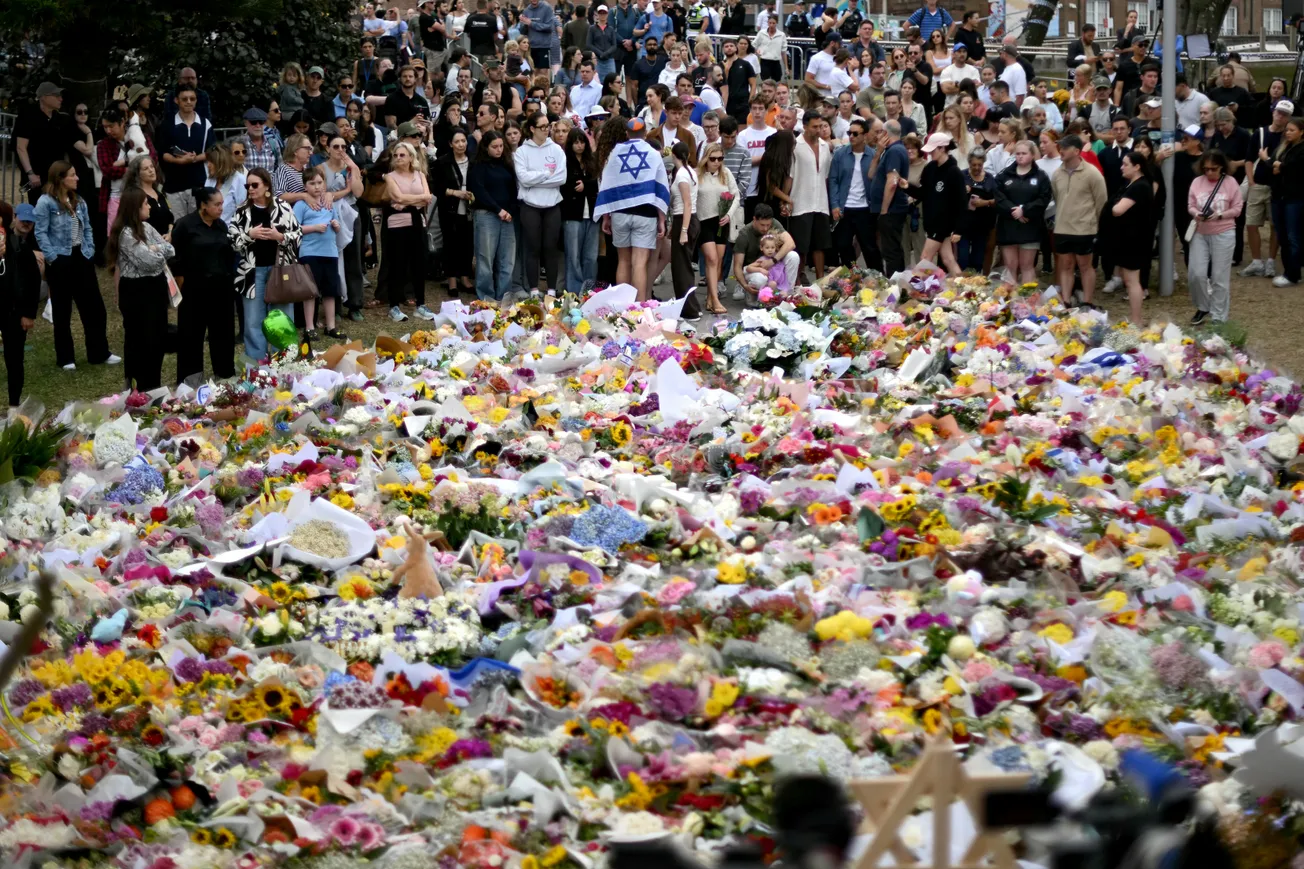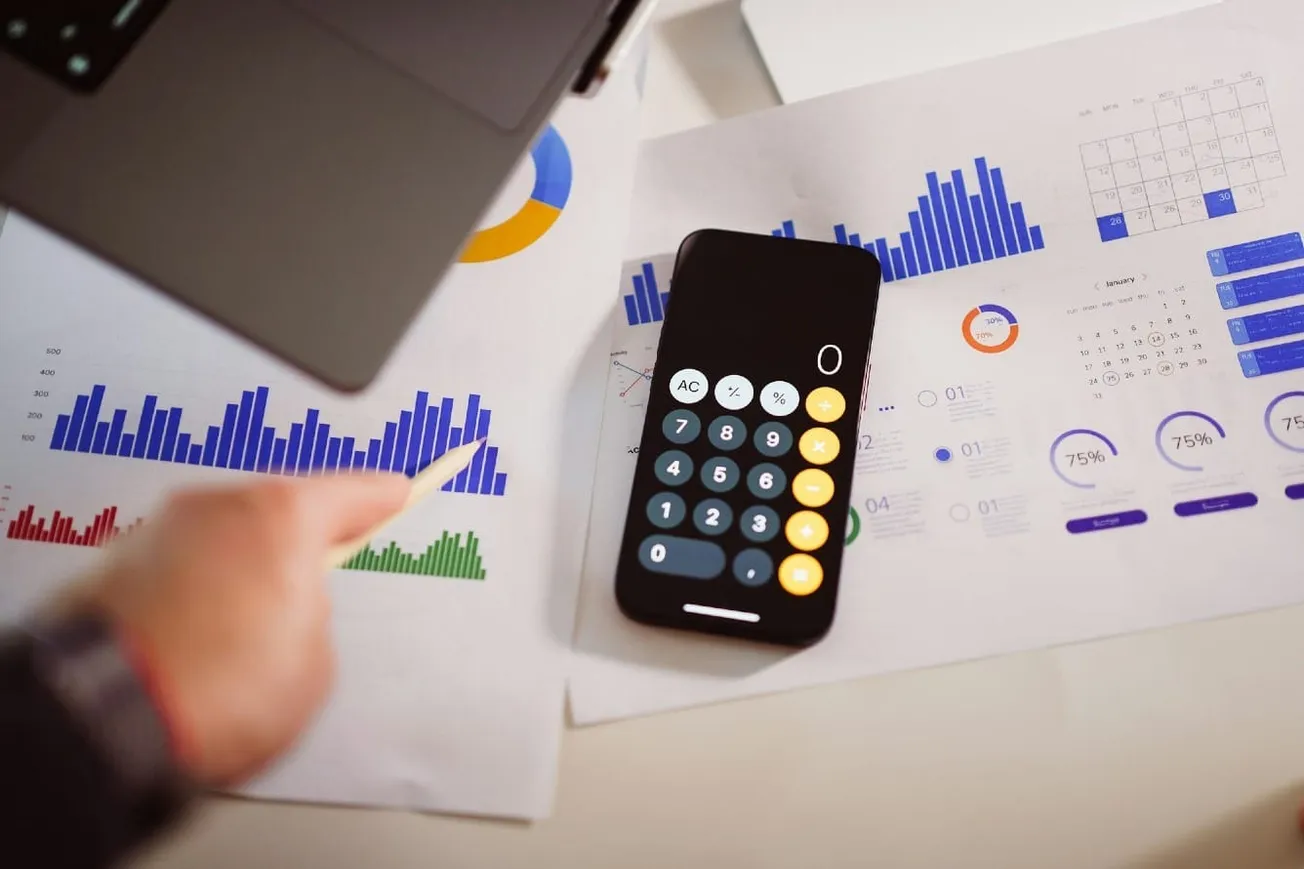Despite a multi-year campaign by the White House and its allies to convince the public that the economy is booming, the vast majority of Americans say they’re worse off today than they were four years ago. And despite claims that partisanship is driving the public’s sour mood, negative views about the economy and President Joe Biden’s performance are almost universal.
That’s according to the latest I&I/TIPP poll of likely voters, which finds that 58% say they aren’t better off than they were four years ago – before the COVID-19 pandemic – while only 34% say they are.
Meanwhile, a mere 23% of those surveyed say Biden is doing an “excellent” or “good” job handling the economy, including fewer than half of Democrats.
The I&I/TIPP Poll asked 1,464 Americans two questions related to the economy: “Comparing your situation today to what it was four years ago, are you better off now than you were four years ago?” and “How would you grade President Biden’s performance handling the economy?” The poll, taken from Nov. 29-Dec. 1, has a margin of error of +/-2.8 percentage points.
The question about whether people are better off than four years ago – famously asked by Ronald Reagan in 1980 before his landslide election over Jimmy Carter – is clearly weighing on minds at the White House.
In a memo sent earlier this month, Biden’s National Economic Adviser Lael Brainard claimed that “American workers are finishing the year in a stronger position than before the pandemic – with wages and wealth up by more than inflation and strong employment thanks in part to the president’s Bidenomics agenda.”
But almost nobody outside the White House believes this, and that includes demographic groups where Biden normally polls well. Only 36% of those 18-24, for example, say they’re better off. Among blacks and Hispanics, it’s 45%. Among lower-income families, 35% say they’re better off.
Other groups are similarly disposed, including urban dwellers (just 41% say they’re better off), college-educated (39%), liberals (44%), and those living in the Northeast (only 34% of whom say they’re better off).
Even among self-identified Democrats, only half (51%) are willing to claim they’re better off under a Democratic president.
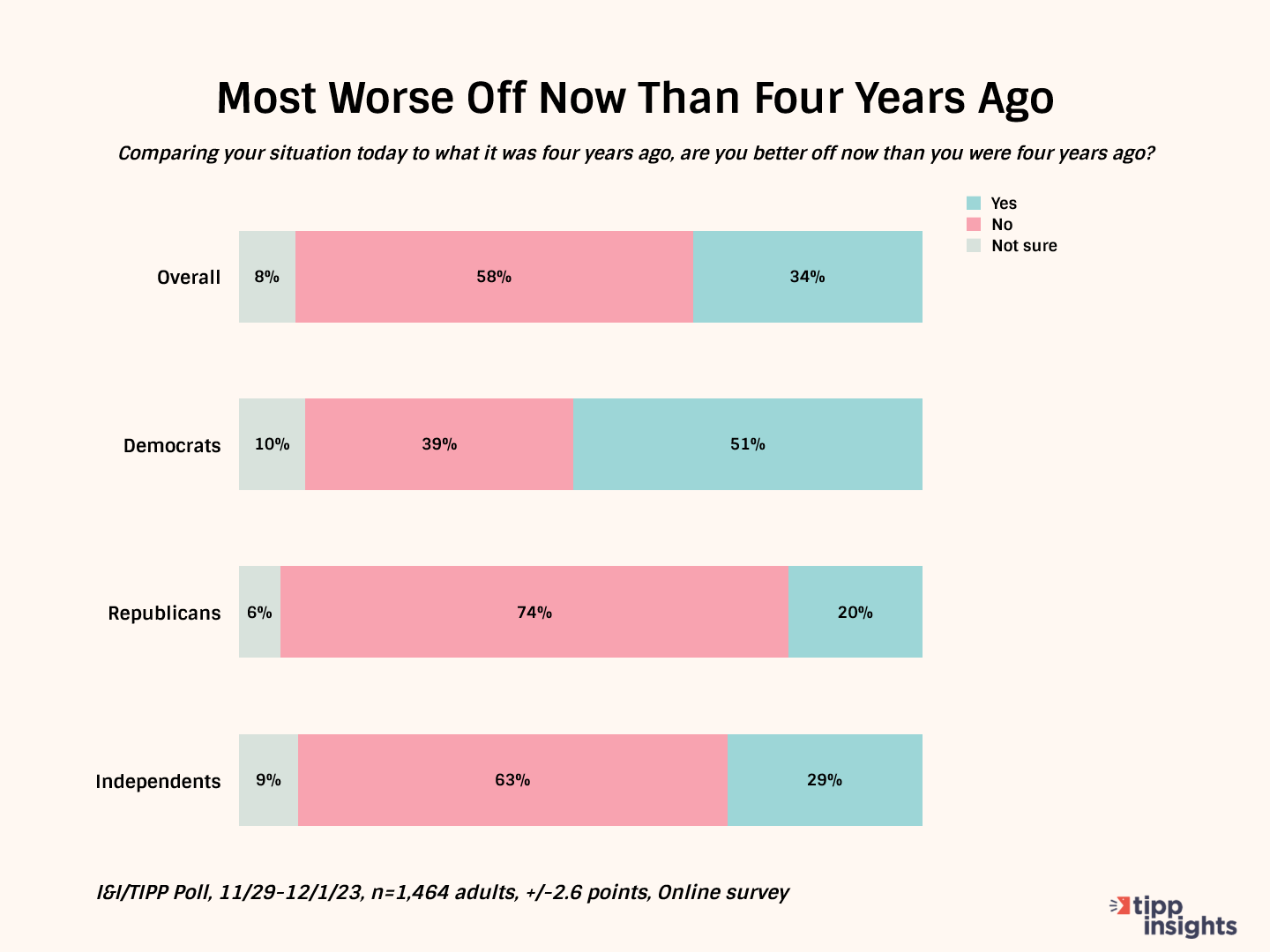
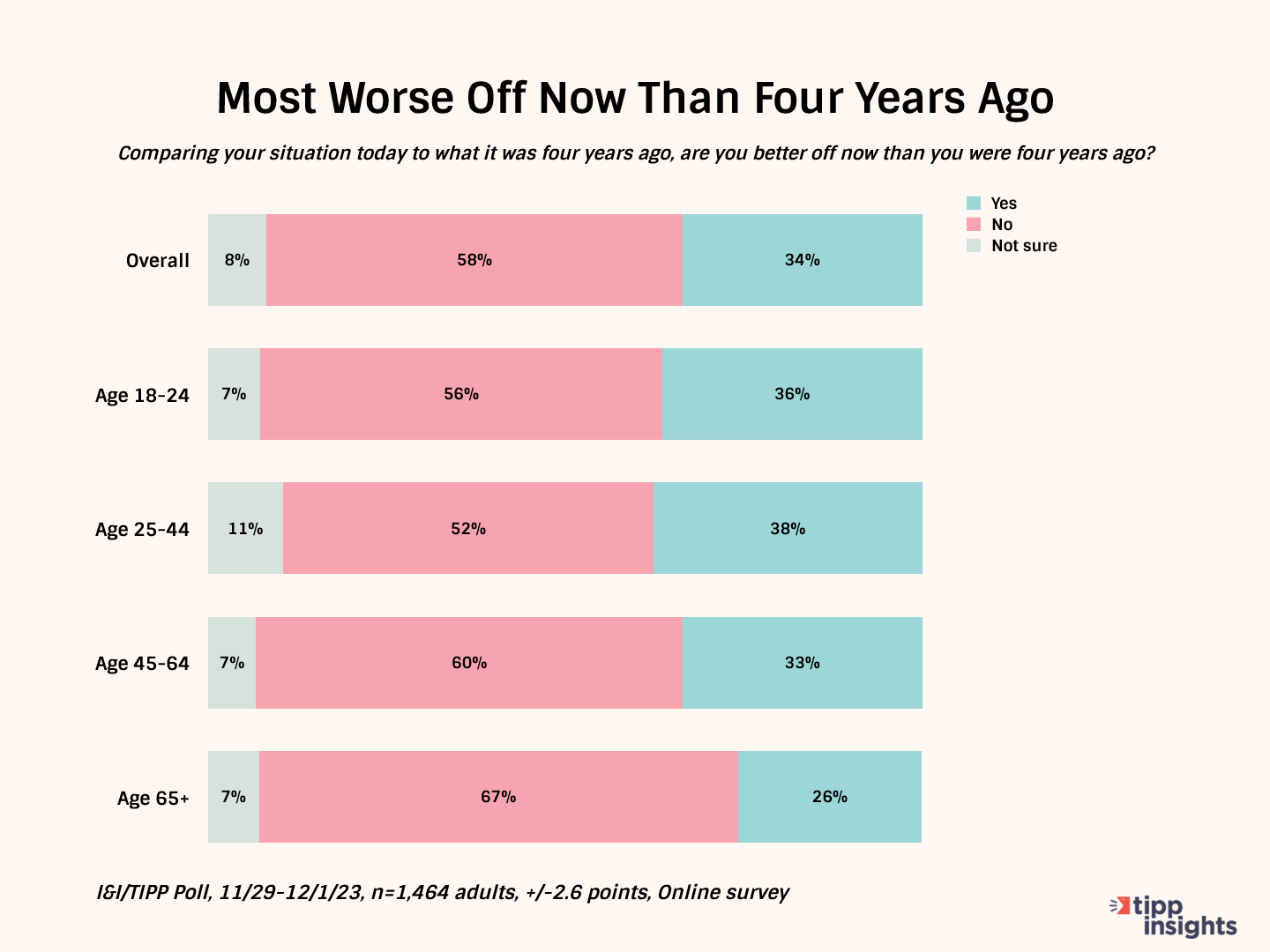
Disapproval of Biden’s handling of the economy is similarly deep and widespread. In fact, there was not a single demographic group where the majority rated his performance as “good” or “excellent” – that includes Democrats, only 47% of whom give Biden’ an “A” or “B” grade.
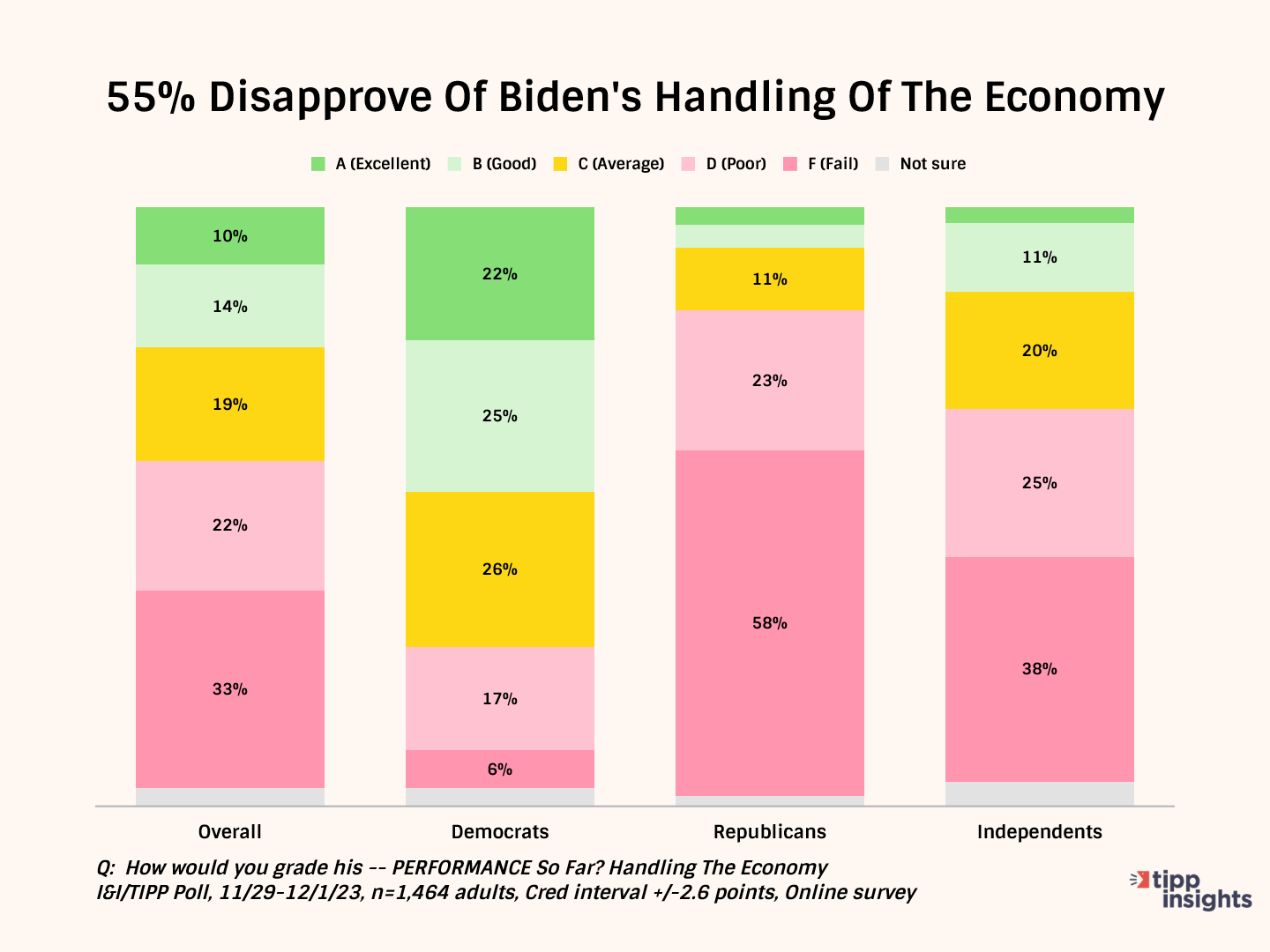
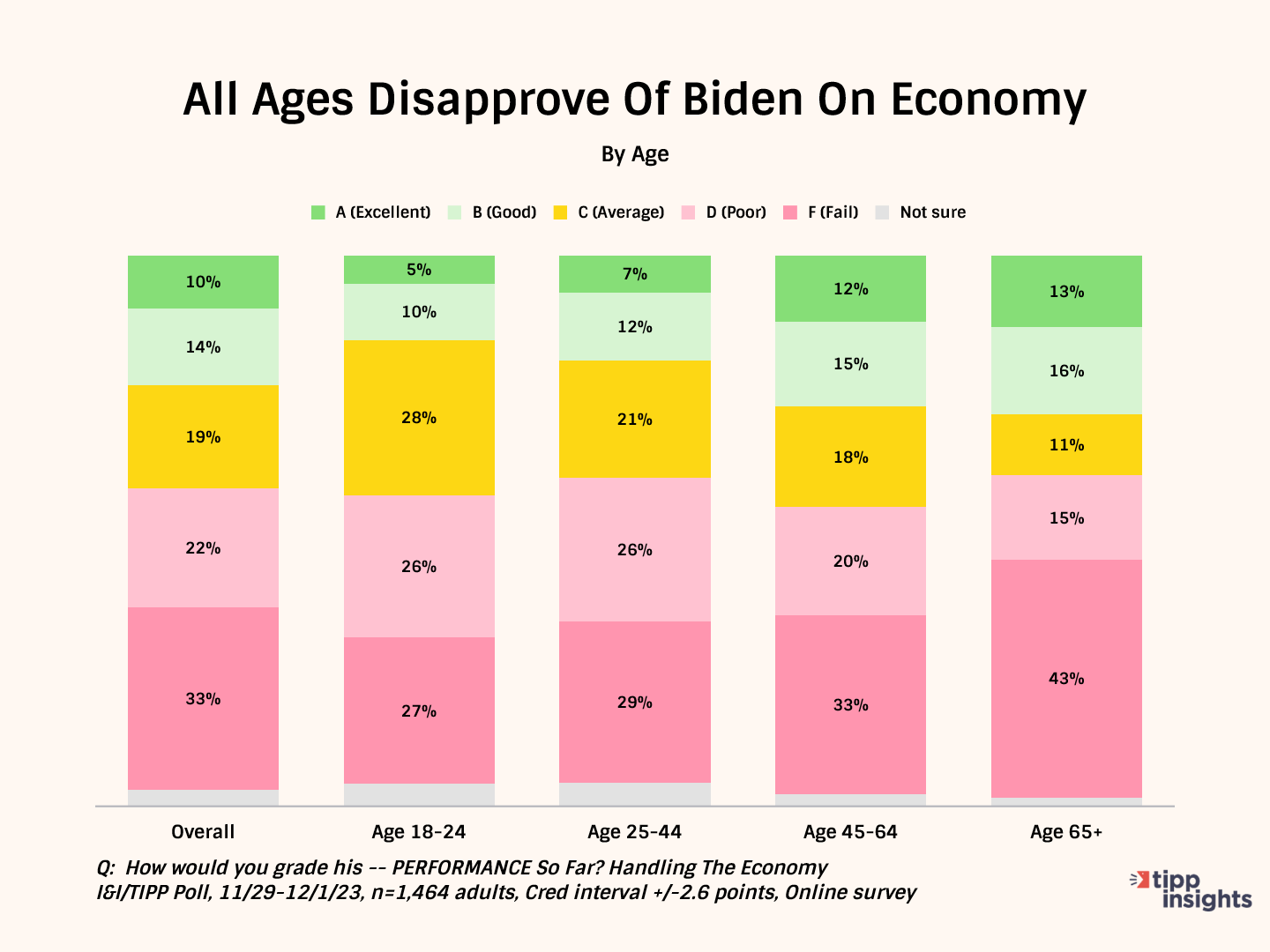
This is a stark rebuke of Biden’s presidency, given that he came into office claiming he was not only going to “rescue” the economy after the COVID-19 lockdowns – for which he spent nearly $2 trillion – but that he would “build back better” by spending trillions more on “green energy,” infrastructure, and other programs.
Biden’s defenders continue to insist that the public’s bad mood is misplaced. But the only concrete evidence they can point to is the fact that the official unemployment rate is currently 3.7% (it was 3.6% in December 2019) and the monthly inflation rate has come down from its nearly double-digit highs last year to 3.1% (it was 2.3% in December 2019). Beyond that, Biden’s own economic advisers have been reduced to saying that the economy didn’t do as badly as some had expected this year.
But none of this matters to families who are struggling with wages that haven’t kept up with inflation (real wages are down 3% since Biden took office), or the 40% of Americans who’ve seen their pandemic savings eaten away by inflation.
To make ends meet, consumers are piling up credit card debt – which now tops $1 trillion for the first time – just as credit card interest rates are at all-time highs.
Americans are also increasingly resorting to “Buy Now, Pay Later” services, which according to NBC News “has set off alarms that consumers are desperate, rushing into the largely unregulated installment loans after running out of mainstream credit options.”
All of this bodes poorly for next year when the public’s answer to “Are you better off than you were four years ago?” will almost certainly decide how they vote in November.
I&I/TIPP publishes timely, unique, and informative data each month on topics of public interest. TIPP’s reputation for polling excellence comes from being the most accurate pollster for the past five presidential elections.
Terry Jones is an editor of Issues & Insights. His four decades of journalism experience include serving as national issues editor, economics editor, and editorial page editor for Investor’s Business Daily.
Want to dig deeper? Download crosstabs from our store for a small fee!
Our performance in 2020 for accuracy as rated by Washington Post:
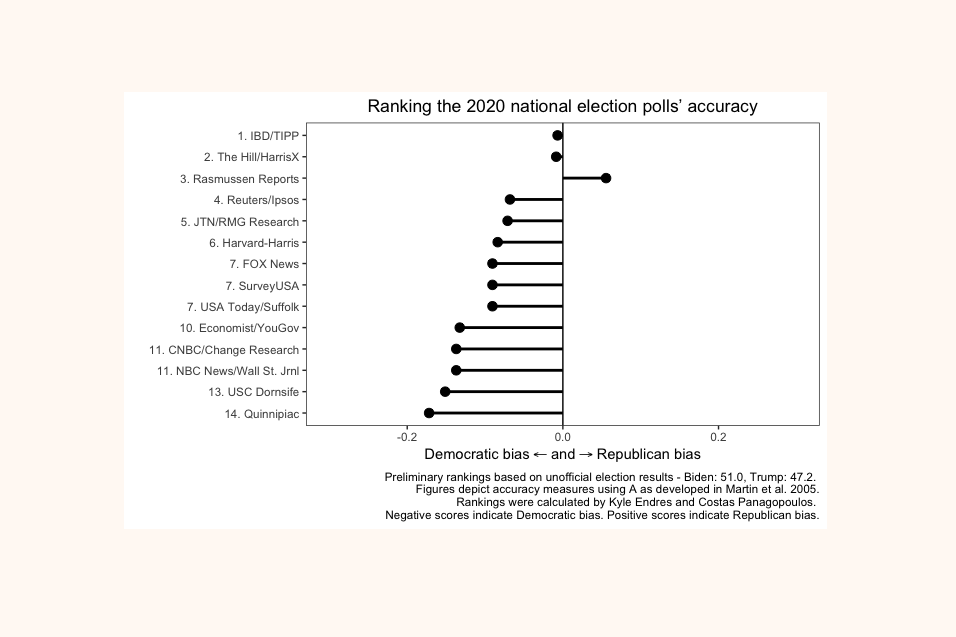
We could use your help. Support our independent journalism with your paid subscription to keep our mission going.

